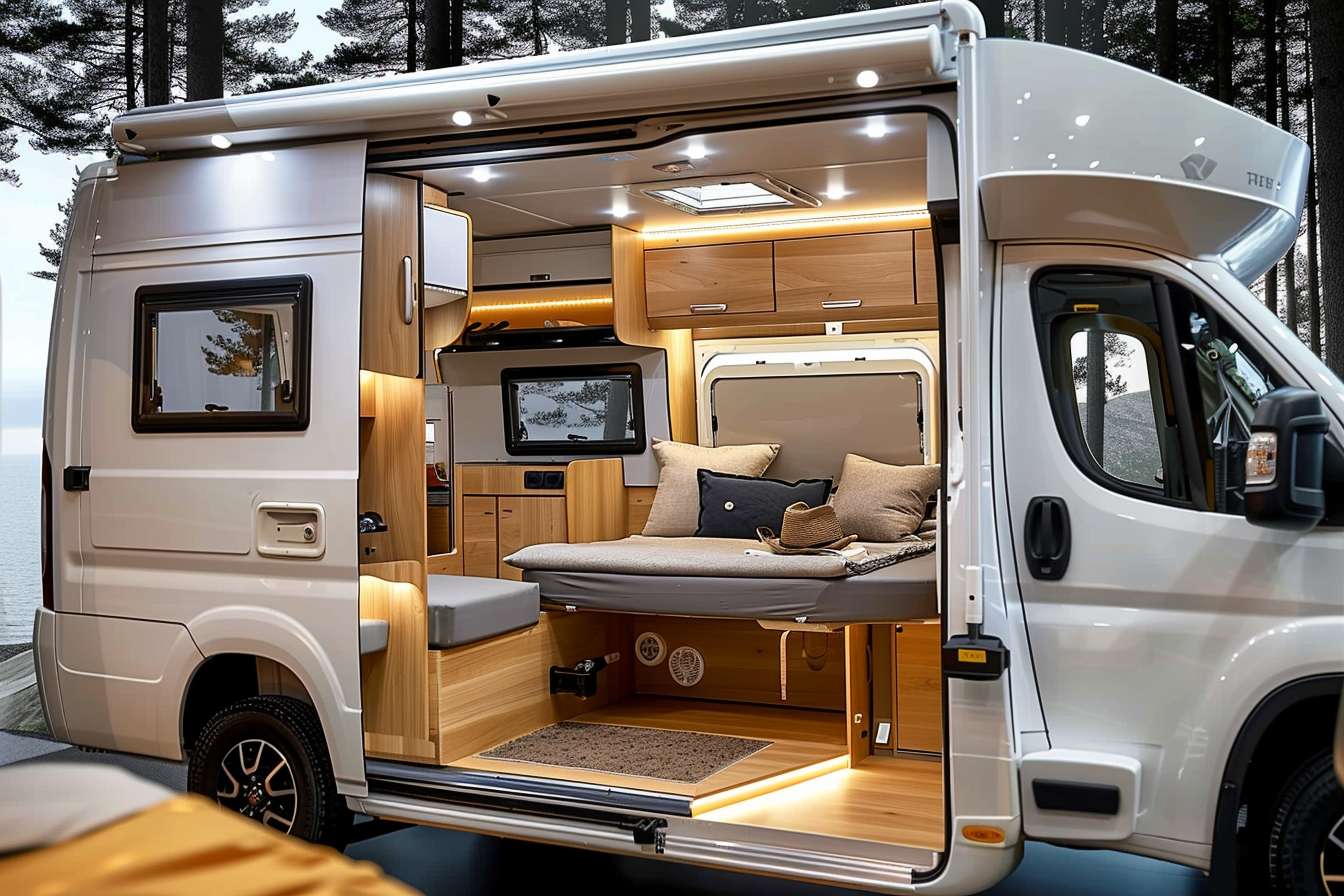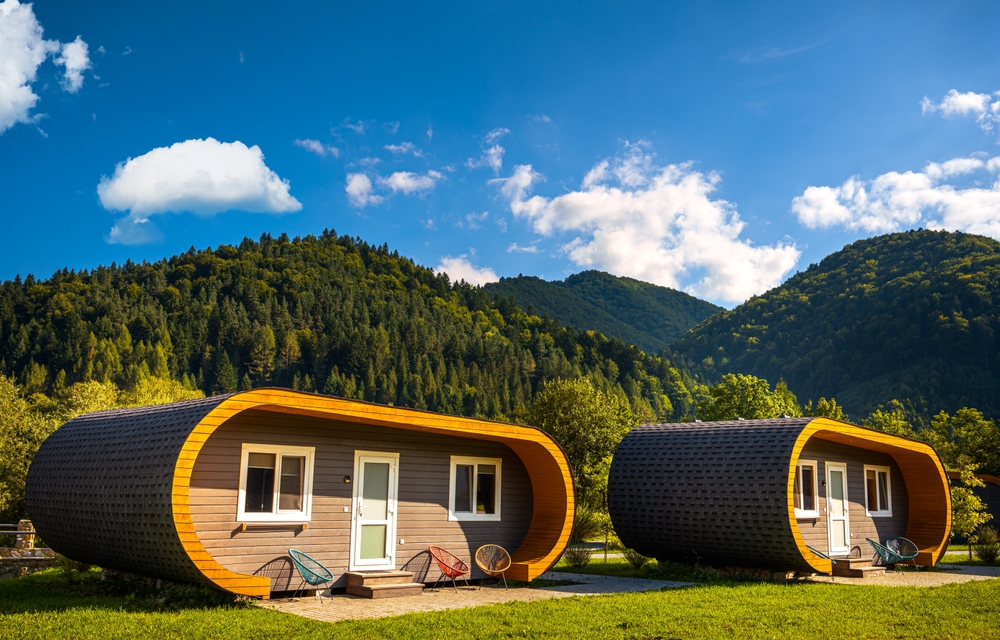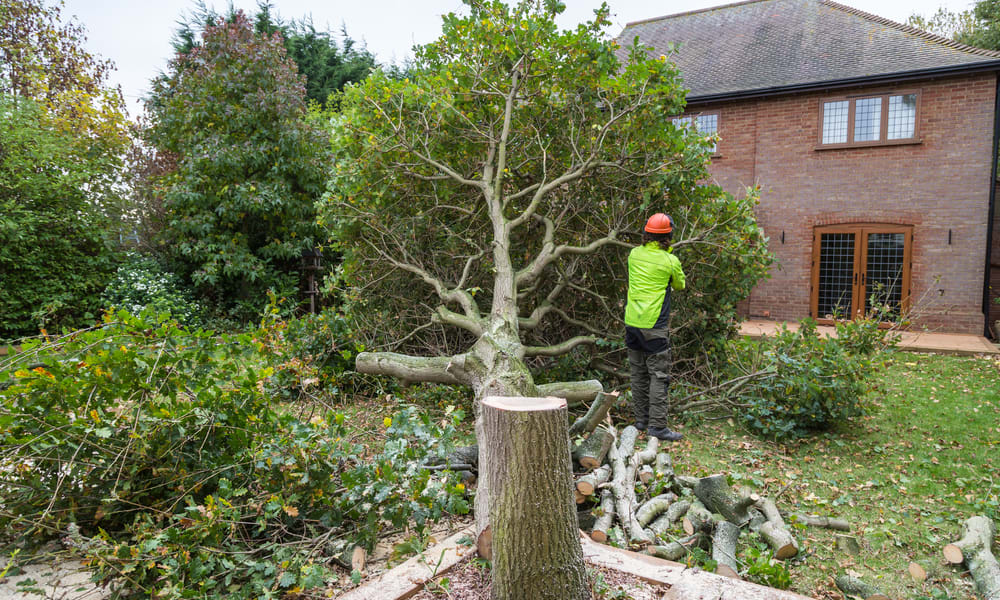Mobile Homes & Trailers: Exploring Modern Living Alternatives
Explore tiny homes on wheels and discover how travel trailers combine mobility with comfort. These compact spaces offer practical layouts, smart storage, and flexibility, making them a great option for those seeking adventure while enjoying the essentials of home wherever the road leads.

Innovative Tiny Homes on Wheels Designs
Tiny homes on wheels represent a revolution in compact, mobile living spaces that maximize functionality while minimizing footprint. Modern designs incorporate clever space-saving solutions like Murphy beds, fold-down tables, and multi-purpose furniture that transform with daily needs. Many builders now focus on vertical space utilization, with lofted sleeping areas and tall storage cabinets that make the most of limited square footage.
Materials have evolved too, with lightweight but durable options like aluminum framing and composite siding that reduce overall weight while maintaining structural integrity. Energy-efficient features are increasingly standard, including solar panel systems, composting toilets, and rainwater collection systems that support off-grid living. For those prioritizing aesthetics, contemporary designs often incorporate large windows, sliding glass doors, and skylights that create an illusion of spaciousness while connecting occupants with the outdoors.
Travel Trailer Living Insights
Living in a travel trailer full-time requires adjustment but offers unique benefits beyond mobility. Many full-timers report significant cost savings compared to traditional housing, with reduced utility bills, property taxes, and maintenance expenses. The lifestyle also promotes intentional living—limited space naturally leads to more thoughtful consumption patterns and less accumulation of unnecessary belongings.
Seasonal considerations become important when living in a travel trailer year-round. Winter requires adequate insulation, proper heat sources, and plumbing protection against freezing temperatures. Summer demands effective cooling solutions, while spring and fall often provide the most comfortable living conditions. Community aspects vary widely, from temporary connections at campgrounds to more permanent relationships in dedicated RV parks or mobile home communities. Many travel trailer residents find the social environment surprisingly rich, with like-minded neighbors who share interests in mobility, outdoor activities, and simplified living.
Travel Trailer Setup and Essentials
Setting up a travel trailer involves more than simply parking. Proper leveling is critical—an unlevel trailer affects appliance function, door operation, and comfort. Most experienced travelers use a combination of built-in leveling systems and supplemental leveling blocks. Utility connections require careful attention, particularly the electrical setup, which may involve 30 or 50-amp service depending on your trailer’s requirements. Water connections should include pressure regulators to protect internal plumbing, while sewer connections demand proper sloping and sealed connections.
Essential equipment for comfortable travel trailer living includes surge protectors, water filters, sewer hose supports, wheel chocks, and stabilizing jacks. For those planning extended stays, investing in quality outdoor living equipment makes sense—weather-resistant furniture, portable grills, and outdoor mats all enhance the living space. Safety equipment should not be overlooked, with fire extinguishers, carbon monoxide detectors, propane leak detectors, and emergency exit plans being non-negotiable items for every mobile living situation.
Space Optimization in Mobile Living
Maximizing limited space requires thoughtful organization and storage solutions. Modular storage systems that can be reconfigured as needs change prove invaluable in mobile living environments. Under-bed storage, overhead cabinets, and vertical wall systems all contribute to functional living spaces. Multi-use furnishings, like dining tables that convert to workspaces or beds, maximize the utility of each square foot.
Digital solutions replace physical items where possible—e-books instead of physical libraries, digital photo collections rather than albums, and streaming services instead of DVD collections. For those working remotely from mobile homes, creating dedicated workspace that can be set up and broken down quickly becomes essential for maintaining productivity while preserving living space. The most successful mobile dwellers develop organization routines that include regular decluttering and reassessment of possessions.
Mobile Home Communities and Locations
Mobile home and trailer living offers diverse location options based on lifestyle preferences. Dedicated mobile home communities provide stability with amenities like community centers, pools, and security features. These communities often have age-specific sections, with 55+ areas offering quieter environments and family sections providing playgrounds and child-friendly facilities. Monthly lot rental fees typically range from $300 to $800 depending on location and amenities offered.
For travel trailer owners seeking more mobility, options include public campgrounds, private RV resorts, and boondocking on public lands. Costs vary significantly, from free dispersed camping on Bureau of Land Management land to luxury RV resorts charging $75-150 per night. Many travelers utilize membership programs like Thousand Trails or Harvest Hosts to reduce costs while maintaining access to amenities.
Prices, rates, or cost estimates mentioned in this article are based on the latest available information but may change over time. Independent research is advised before making financial decisions.
Regulations and Legal Considerations
Navigating the regulatory landscape for mobile homes and trailers requires understanding both local and state regulations. Zoning laws often dictate where mobile homes can be placed, with many municipalities restricting placement to designated areas or manufactured home communities. Building codes for manufactured homes follow HUD standards, while tiny homes on wheels may be classified as RVs in some jurisdictions and need to meet RVIA certification requirements.
Insurance considerations differ substantially from traditional homes. Mobile homes typically require specialized insurance policies that account for their unique risks, including transportability and potentially higher vulnerability to certain weather events. Travel trailers are usually covered under auto insurance policies with specialized RV endorsements. Understanding these regulatory differences helps prevent unexpected legal complications and ensures proper protection for your investment in mobile living.




